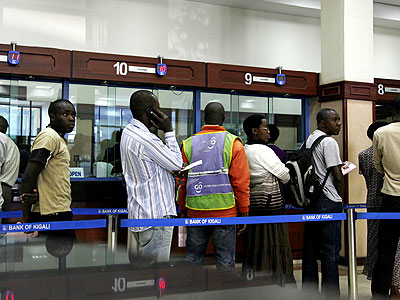Editor, I do not agree with Mr. Abdul Nizeyimana (a financial consultant with over 20 years experience as a banker in the region who was quoted in the story) that “with low rates, a large percentage of Rwandans are likely to take up loans to buy items they don’t need or invest in high-risk projects”.


Editor,
This is with reference to the story, "Why borrowers will have to wait a bit longer for interest rate cuts”, which was published in your Business Times magazine on October 29.
I do not agree with Mr. Abdul Nizeyimana (a financial consultant with over 20 years experience as a banker in the region who was quoted in the story) that "with low rates, a large percentage of Rwandans are likely to take up loans to buy items they don’t need or invest in high-risk projects”.
This can’t be the case as long as the banks observe minimum prudential financial standards.
If a bank deems it that the loan-seeker wants to buy something he or she does not need or intends to invest in a risky business, it does not matter what the interest rate is – the person should not get the money.
Low interest rates should not be associated with bad economic behavior; it is rather one of the major economic factors that boost investment. I think banks in Rwanda are becoming so unfair. An interest rate of 17.5 per cent is extremely high.
Currently, interest rate in the US stands at 0.25 per cent. The US Federal Reserve kept interest rates low in order to encourage investment after the 2007-2008 "great recession” and it is working.
It is important that the National Bank of Rwanda (BNR) does something on these rates.
Rates like these and conditions like double valued collaterals are the ones that keep feeding income inequality in an economy. That’s the kind of situation where the rich continue getting richer and the poor poorer. I don’t think that is the economy we want to see in Rwanda.
The central bank should at least ensure that interest rates are slashed to below 5 per cent with uncomplicated collateral requirements. If not, how do you expect the young people to create jobs if a Rwf20 million loan requires a collateral of Rwf40 million and an interest rate of almost Rwf3.5 million?
It is obviously economically dangerous.
Jean-Léon Iragena,United States


